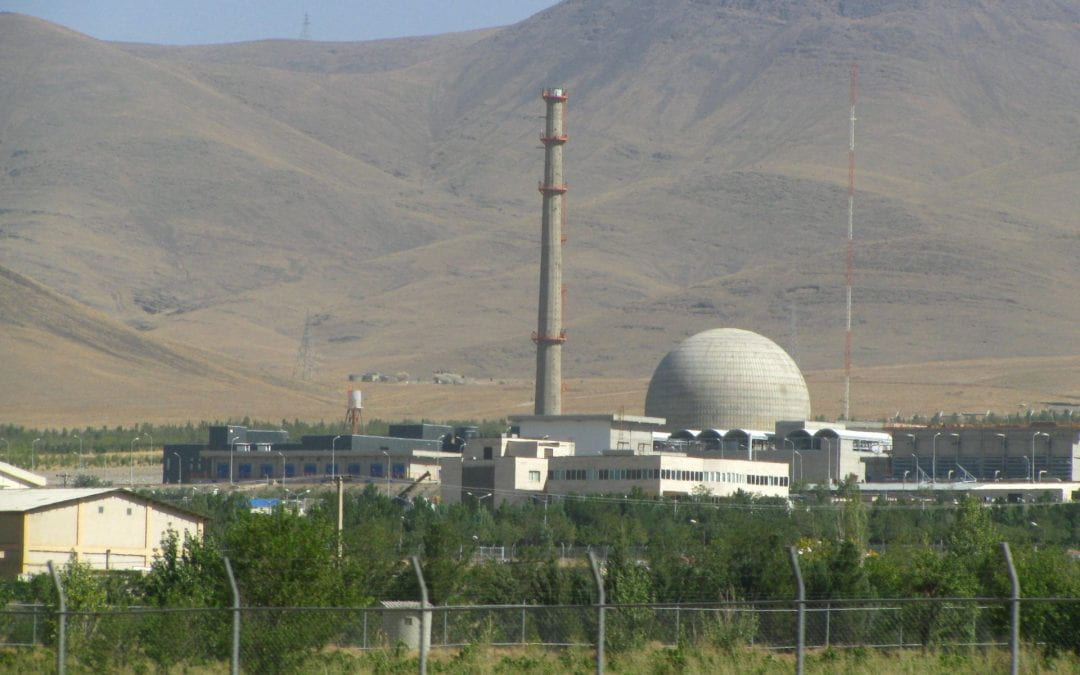The 2015 Joint Comprehensive Plan of Action (JCPOA), otherwise known as the Iran nuclear deal, is largely a stop-gap measure in preventing Iran from acquiring nuclear weapons. After 10 to 15 years from when the deal was signed, limits on Iran’s ability to enrich uranium will loosen, and after another 5 to 10 years, International Atomic Energy Agency (IAEA) inspections of Iran’s centrifuge production manufacturing sites and uranium mine will end. Moreover, the additional protocol, which allowed the IAEA to conduct intrusive inspections of Iran, was suspended by the Islamic Republic in February, and extended in only a limited capacity up through May. Since then Iran has refused to form a new accord with the IAEA. All of this leaves a nuclear weapon within short reach of Supreme Leader Ali Khamenei. By tying relief from the most devastating sanctions to the deal, the Obama administration left the U.S. with little leverage to negotiate a robust, permanent nuclear solution after key JCPOA’s provisions end. In pulling out of the agreement, the Trump administration took back the U.S.’s leverage but failed to negotiate a long-term deal. Now, Biden has the opportunity to leave his mark on the issue.
Besides its expiration dates, the original nuclear deal had other flaws such as its silence on Iran’s ballistic missile program, which would be used to deliver a nuclear payload. It also allowed Iran to maintain a “civilian nuclear program” in underground facilities that could be misused. Biden could negotiate a new agreement that addresses these problems. He could even be bolder and try to push Iran to curtail its global support for terrorism in exchange for full sanctions relief. Iranian support has empowered the terrorist groups, Hamas and Hezbollah to instigate wars against Israel; it has allowed the Houthis in Yemen to continue fighting a brutal civil war; and it has helped Shiite militias in Iraq kill U.S. and Iraqi forces. Iran is in a dire economic position, not only because of U.S. sanctions but also because of COVID-19’s effect on its economy. Biden should take advantage of these circumstances for the sake of international security.
Rejoining the 2015 deal, or negotiating a new but weak agreement could come with serious consequences. Israel sees a nuclear-armed Iran as an existential threat: the Iranian regime has repeatedly called for the destruction of Israel, a state that is small enough to be completely devastated by a single nuclear warhead. Consequently, the Jewish State is ready to attack Iran to stymie its nuclear ambitions. Sunni Arab countries across the region are also worried about Iran and might tacitly, if not overtly, back an Israeli strike on Iran. They could also pursue their own nuclear weapons programs to parallel Iran’s. To avert a regional conflict and nuclear arms race, Biden must make a deal that satisfies the coalition of Middle Eastern nations that have coallessed against the Shiite Islamic Republic.
Biden has a unique opportunity to forge a long-term solution to the Iranian nuclear challenge and, possibly, to Iranian misbehavior more generally. The recent “election” of hardliner Ebrahim Raisi to the Iranian presidency may be a sign that his country is less willing to negotiate with the U.S than it was before. Further, China’s openness to investing in Iran may undercut the U.S.’s negotiating power. But still, Biden has more leverage over Iran now than the U.S. may have for the foreseeable future. A return to the old deal would, at best, simply “kick the can down the road” while leaving the U.S. with less power to tackle the Iranian nuclear threat once critical JCPOA provisions expire. Consequently, Biden must not miss the opportunity to potentially craft a better, lasting deal before it is too late.
Author Biography: Ari Givner is a J.D. candidate at The George Washington University Law School and a moderator at the International Law and Policy Brief. He plans to pursue a legal career that touches foreign affairs, national security, and technology.

